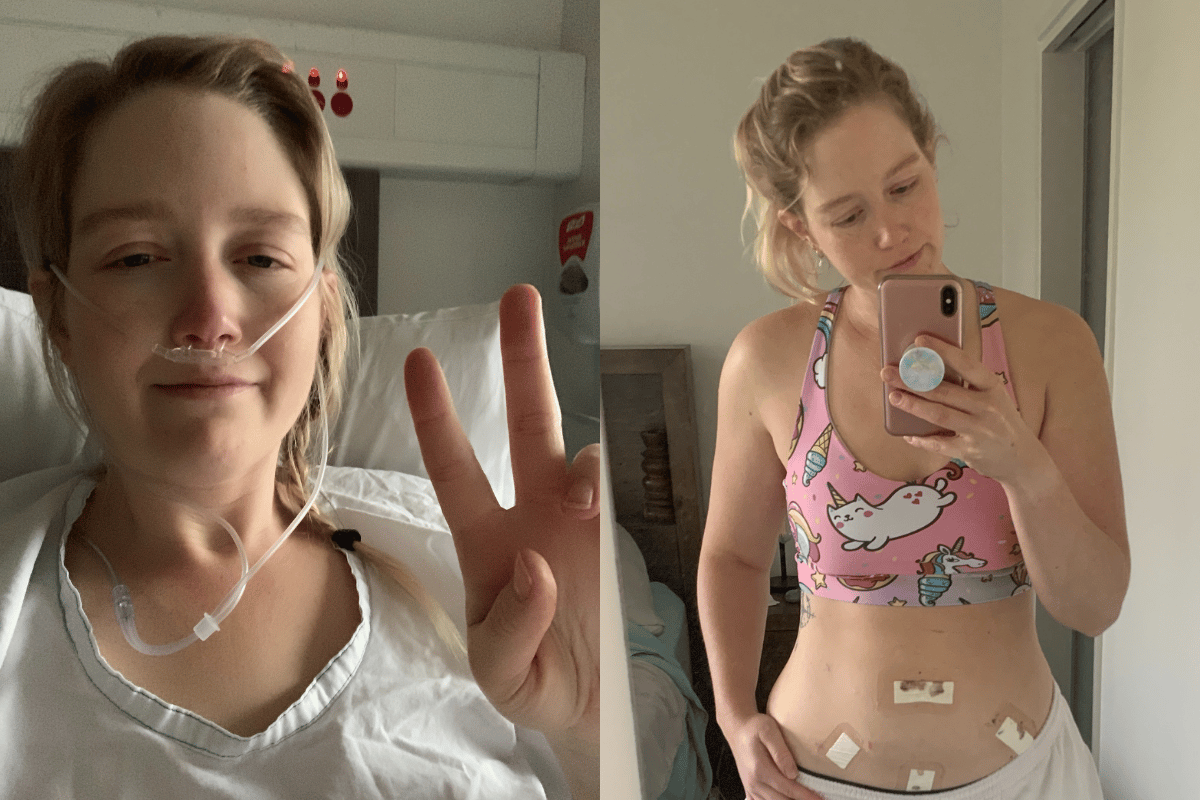
So, you suspect you have, or you've been diagnosed with endo. First, I'd like to say that sucks! There's no way to sugar coat it. It's okay to cry, eat chocolate and go through all the waves of emotions. Take a breath and absorb this information as best you can.
Watch: What to know about your period colour, according to Well's Dr Mariam. Post continues below.
I'm sorry to welcome you to the 'endo-warriors' community. Although we're strong, it doesn't change the fact that this sucks. You've got this. It may feel impossible right now, but you can do this — because it's not going to magically go away (believe me, I've tried).
Listen: Where's the strangest place you can find endo? Can you make more money when you're ovulating? And is it heartburn or a heart attack? In this episode we talk to gynaecological surgeon and endometriosis specialist, Dr Amani Harris. Post continues below.
My diagnosis.
The year was 2006. MySpace was the cool place to be online, phones had Snake II, the Twilight book was taking off amongst teeny-boppers, and I was diagnosed with endometriosis. I was an awkward 15-year-old in year 10 at an all-girl South-West Sydney high school and had to miss my mid-year school certificate exams to have surgery.





























































































